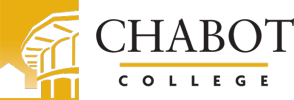
Biological Sciences: Health Science Fundamentals
This program map from the 2024-2025 catalog year represents one possible pathway to complete this program. Your pathway may vary depending on your transfer plans and also previous college credit, including AP Test scores, concurrent enrollment courses and high school articulated courses.
I'm ready to get started. What do I do next?
- Review this program map to get an overview of the required courses
- Meet with a counselor to develop your customized student education plan www.chabotcollege.edu/counseling
- Use DegreeWorks, an online student education planning tool, to track your progress toward graduation www.chabotcollege.edu / admissions / degreeworks
Students will learn the core concepts of biology, of chemistry, and of the human body that serve as the foundation for careers in the allied health fields.
What can I do with this major?
The Certificate of Achievement in Allied Health contains all (or most) of the prerequisite science courses needed to apply for allied health career programs in nursing, dental hygiene, physician's assistant, medical technology/technicians, occupational therapy, recreational therapy, etc.
Learning and Career Pathway
- Health and Wellness